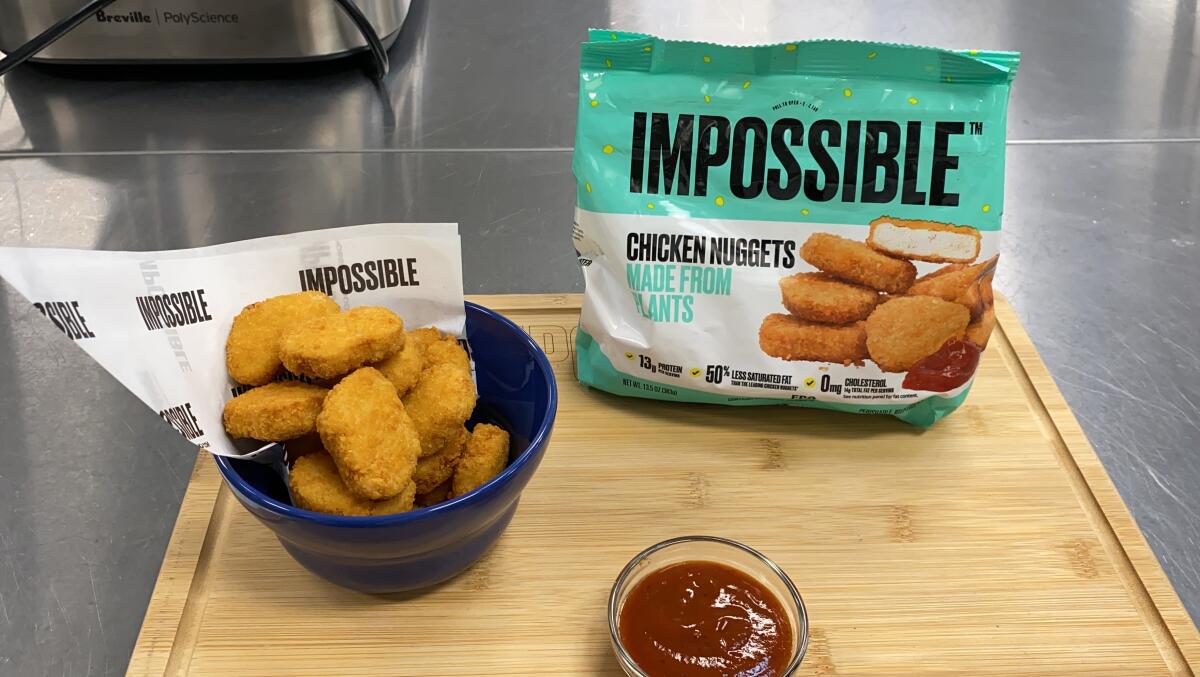Impossible Foods plans to lay off about 20% of workers

- Share via
Impossible Foods Inc., the maker of meatless burgers and sausages, is preparing to cut about 20% of its staff, according to a person familiar with the matter.
It’s the latest evidence of pressure facing plant-based protein makers as inflation pushes consumers toward less-expensive animal proteins and competition increases.
The Redwood City, Calif., company currently employs about 700 workers. The new round of dismissals could reduce that amount by more than 100.
Impossible Foods also offered voluntary separation payments and benefits to employees at the end of 2022, said the person, who asked not to be named discussing private information.
An internal document viewed by Bloomberg confirmed the separation packages being offered.
The company previously reduced its head count in October, cutting about 6% of its workforce at the time.
Impossible Foods didn’t respond to a request for comment.
Companies are flocking to alt-protein central — California
Beyond Meat Inc., a key competitor to Impossible Foods, also reduced its workforce last year amid slumping sales. The company’s stock has rallied about 35% this year after an 81% plunge in 2022.
Closely held Impossible Foods recently said its sales were up more than 50% in 2022 in dollar terms at U.S. retail stores. In a September interview, Chief Executive Peter McGuinness said Impossible Foods has a strong balance sheet and good cash position.
Impossible Foods has rapidly expanded to restaurants and supermarkets. Maintaining momentum will become challenging as performance of the broader plant-based meat category slips.
Supermarket sales of refrigerated meat alternatives fell 15% by volume for the 52 weeks that ended Jan. 1, according to market-research firm IRI, while they declined 14% in dollar terms. In restaurants and food-service outlets, orders of plant-based burgers dropped 9% in the 12 months that ended in November, according to market researcher NPD Group.
Impossible Foods sells products at major restaurant chains, including White Castle, Qdoba and Burger King, which offers the Impossible Whopper.
Data from HundredX, a consumer-experience strategy firm, also suggests falling interest. The percentage of shoppers who have eaten Impossible products but say they’re less likely to eat as much going forward has risen, according to feedback collected from 1,723 consumers in the last year.
More to Read
Inside the business of entertainment
The Wide Shot brings you news, analysis and insights on everything from streaming wars to production — and what it all means for the future.
You may occasionally receive promotional content from the Los Angeles Times.











